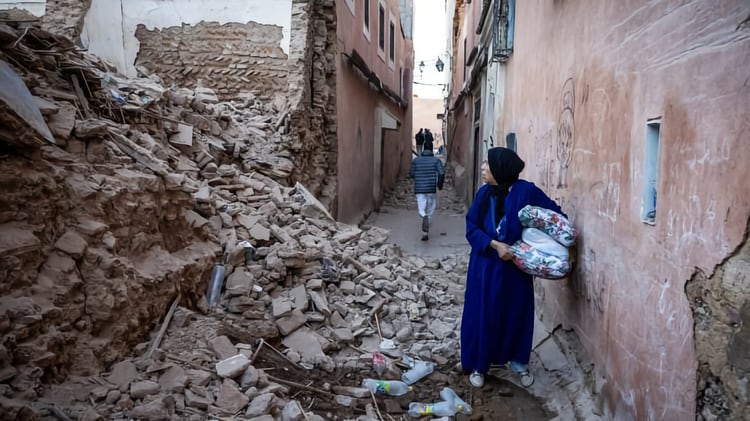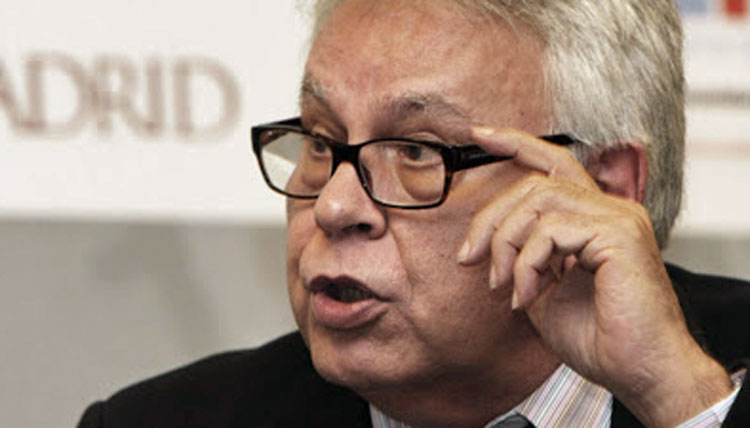The Diplomat
A team from the Military Emergency Unit (UME, by its spanish acronym), made up of 56 soldiers and four dogs, arrived in Morocco yesterday to cooperate in the search and rescue of survivors of Friday’s earthquake in the southwest of the Maghreb country, which has caused more than 2,100 deaths and injured more than 2,400 people.
The Spanish soldiers were deployed in Morocco after the Moroccan authorities officially requested humanitarian aid from Spain last night, as confirmed yesterday by the acting Minister of Foreign Affairs, José Manuel Albares, from New Delhi.
Albares said that, after receiving the request from Morocco, he contacted the Minister of Defence, Margarita Robles, and the Minister of the Interior, Fernando Grande-Marlaska, to activate the operation, which will consist of material and human rescue and rescue teams “because it is urgent to find as many people alive as possible”.
The military personnel sent to Morocco is made up of a search and rescue team from the BIEM IV (Zaragoza), with 46 soldiers, and a coordination team from the General Headquarters (UMEDAT), with 10 personnel, in addition to four dogs from the cynological team. “We are going to try to help as much as possible to save lives, just as we did in Turkey, in the face of tragedies of this magnitude,” declared the acting Defence Minister, Margarita Robles.
The UME teams have the capacity to cut and drill structures such as reinforced concrete, as well as to rescue victims once they have been located and access to them has been opened.
These UME teams have already participated in earthquakes such as those in Haiti, Lorca, Nepal, Ecuador, Mexico and the most recent one in Turkey, where they were deployed in February of this year, locating six people alive under the rubble.
According to the Ministry of the Interior, the Directorate General of Civil Protection and Emergencies is coordinating the deployment of Spanish aid, which could be joined by additional teams from the autonomous communities. Thus, a team from the Special Emergency and Immediate Response Unit of the Community of Madrid (ERICAM) was scheduled to travel to the neighbouring country, and will be made up of thirty people belonging to the Community Fire Department, SUMMA112, canine guides and four rescue dogs.
Albares also said early this morning in an interview on Catalunya Radio that there was still no record of any Spanish citizens dead or injured in the earthquake, after contacting all those registered in the registry, as well as police stations and hospitals.
He also indicated that Spaniards who are in the affected area can go to the Cervantes Institute in Marrakech, which last night took in several Spaniards who spent the night there until a hotel place could be found for them.
The minister said that the government had contacted the airlines Iberia and Binter about the “possibility that the next planes to arrive will be planes with more capacity than planned in order to be able to transport all” the residents of the mainland and the Canary Islands. He added that “there is no problem” for tourists with Spanish passports who want to return from Morocco by plane because commercial flights continue to depart and the airspace is open, and there are no plans to close or cancel commercial flights.
Naviera Armas Trasmediterránea has made the full capacity of its fleet of ships available to the Spanish and Moroccan authorities, giving absolute priority for boarding to ambulances, fire brigades and rescue services. Trasmediterránea operates in the Strait of Gibraltar and Alboran area, connecting it with the Moroccan country via the Algeciras-Tangier Med and Almería-Nador lines.






